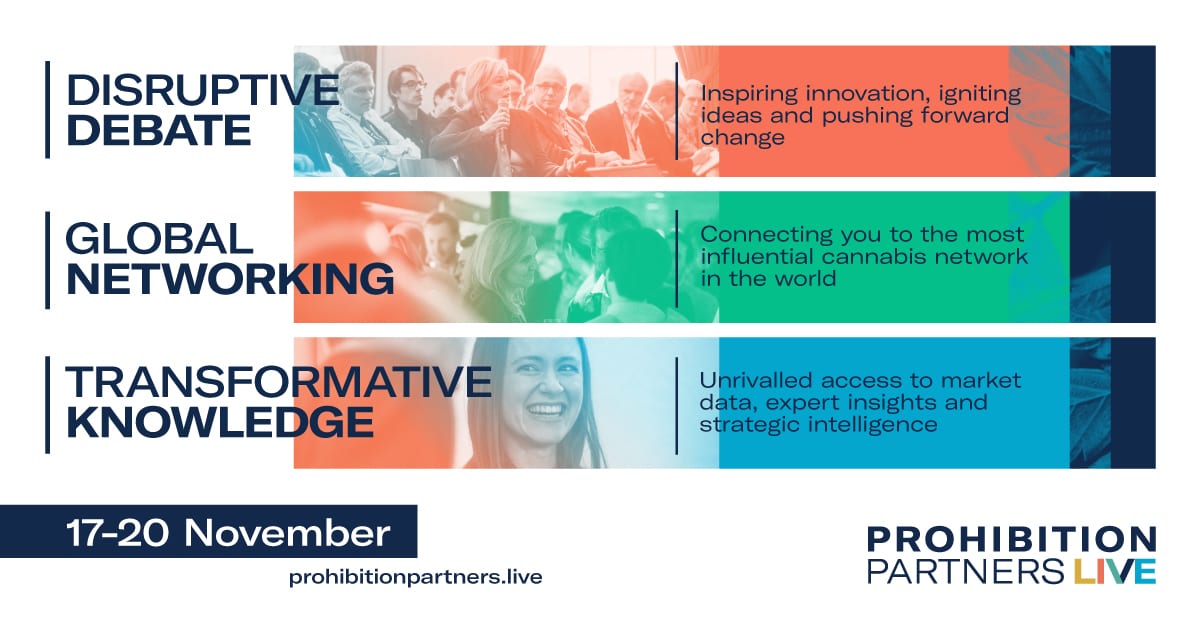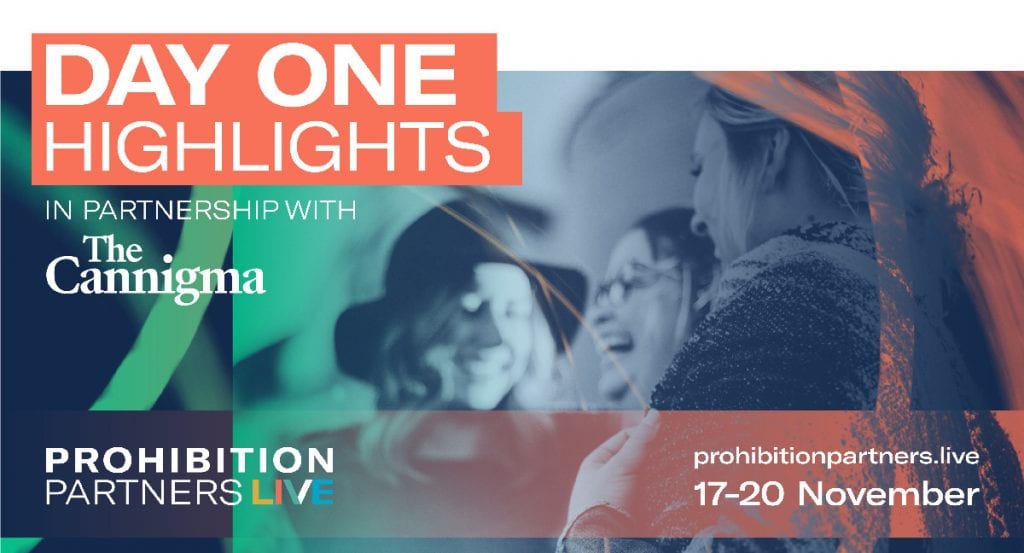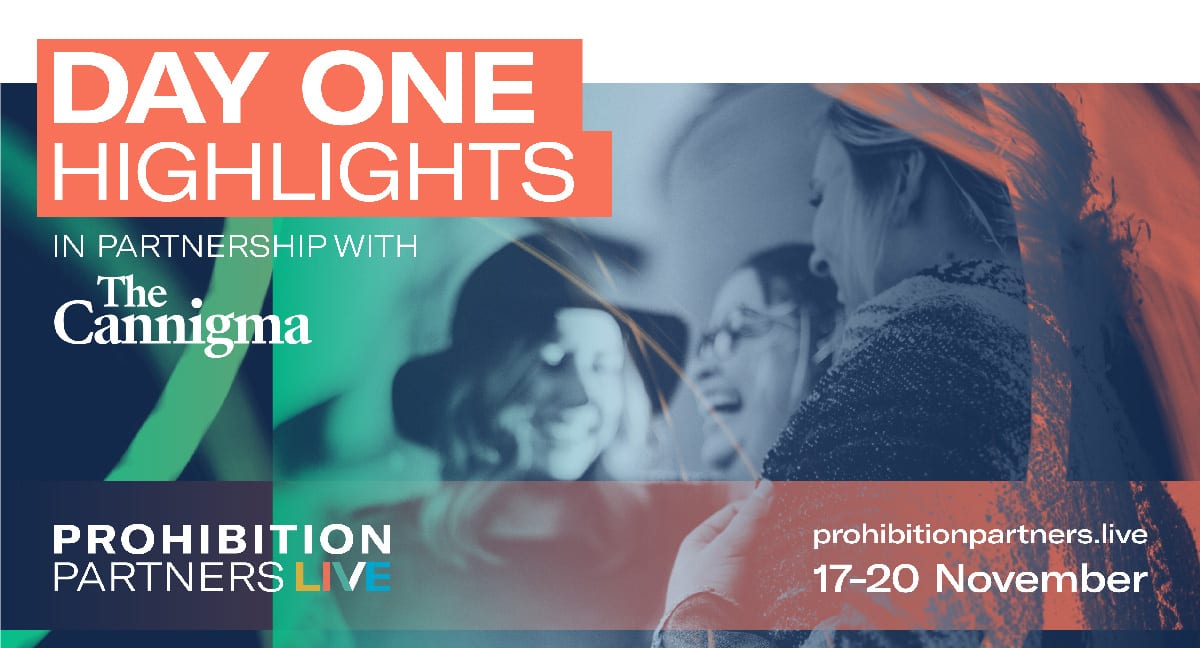Prohibition Partners LIVE - Day One Highlights
This article has been written by Cannigma, an evidence-based cannabis site dedicated to bringing reliable information about cannabis to anyone who needs it.
Day One of Prohibition Partners LIVE 2020 saw a fascinating array of speakers across five unique virtual event stages — Cannabis Oceania, Cannabis Europa, Cannabis Americana, ProCapital in partnership with MAZAKALI, and The PSYCH Symposium. The panels covered everything from COVID-19 and cannabis to the CBD market in Italy and the ins and outs of THC.
THC Under the Microscope
When it comes to preconceptions about THC, could there be such a thing as good stigma? That thought came to mind during “THC Under the Microscope,” a panel discussion on the Cannabis Americana stage that featured Dr. David Casarett of the Duke University School of Medicine, Jessie Kater of Curaleaf, and Elana Goldberg, CEO of The Cannigma.
“I think some of the stigma around THC is at least partially deserved, we know that THC has some side effects, we know that it has the potential to be addictive, it impairs driving, and so on,” Casarett said. So as we talk about reducing stigma we should do so carefully and thoroughly, but as adult use becomes more common, that stigma will decrease.
Both Casarett and Kater agreed that the industry has in many ways put an emphasis on high-THC and high-CBD products, at the expense of a more holistic, whole plant approach.
“I think [orally consumed] products are really growing tremendously right now in the market because people are discovering that when properly dosed at low dose, microsdoing, these are actually very beneficial products,” Kater said.
Casarett agreed, saying that “if we really are serious about trying to figure out what the ideal combination is for individuals then we need much more of a spectrum” of cannabinoids, terpenes, flavonoids, and other ingredients.
And in what may not come as a shock, Kater, Casarett, and Goldberg all agreed that further research and more collaboration between the cannabis world and scientists is needed in order to better understand the plant and its potential benefits.
COVID-19 and Cannabinoid Drug Development
There are currently 16 different teams across the world working on cannabinoid-based drugs to combat the symptoms of COVID-19, and Conor O’Brien of Prohibition Partners gave attendees of the Cannabis Europa stage a first hand look at where things stand.
O’Brien highlighted Ichilov Medical Center in Tel Aviv’s study of CBD as a treatment for inflammation, how the University of Sao Paulo is examining the use of CBD to treat mild-to moderate COVID-19 symptoms, and how Tetra Bio-Pharma is examining how the anti-inflammatory effects of cannabinoids can help treat ARDS-003, to name just a few.
O’Brien clarified that no conclusive evidence has been found that can prove that cannabinoids can help allay COVID-19 symptoms, and that caution is needed when promoting the use of cannabinoids to treat any conditions, including COVID-19. He also stated that regardless of what happens with these research programs, COVID-related research will benefit drug development in the long term.
Synthetic vs Organic CBD
The impact of mass-produced, cheap synthetic CBD would be catastrophic for the hemp industry. “We will die, there will be no farmers,” Lorenza Romanese, of the European Industral Hemp Association said during the “Synthetic vs Organic CBD” debate on the Cannabis Europa stage. That said, the scalability of synthetic CBD is simply unproven, noted Phillipp Fuhrmann of CanX CBD SLR.
The participants debated the safety, economic impact, and consumer readiness for synthetic CBD in the European market. Ulla Haanig Singapuri, of KannaSwiss AG, argued that synthetic CBD is not what consumers want — part of the appeal of CBD is that it is plant based and they want natural, sustainable products.
The panelists seemed to agree that in the pharmaceutical world, synthetic CBD is more likely to take hold in the future, whereas in the nutraceutical market organic CBD will probably be around to stay. One idea for navigating the difference is to let consumers decide, Hang Singapuri proposed, by clearly disclosing from where a product’s CBD is sourced. “It could be differentiated in name, like Marinol and THC,” she offered, referring to a synthetic THC medication on the market in many countries.
Join the global cannabis conversation this week - last tickets for Prohibition Partners LIVE between 17-20 November on-sale here. Join the debate on social media #PPLIVE


